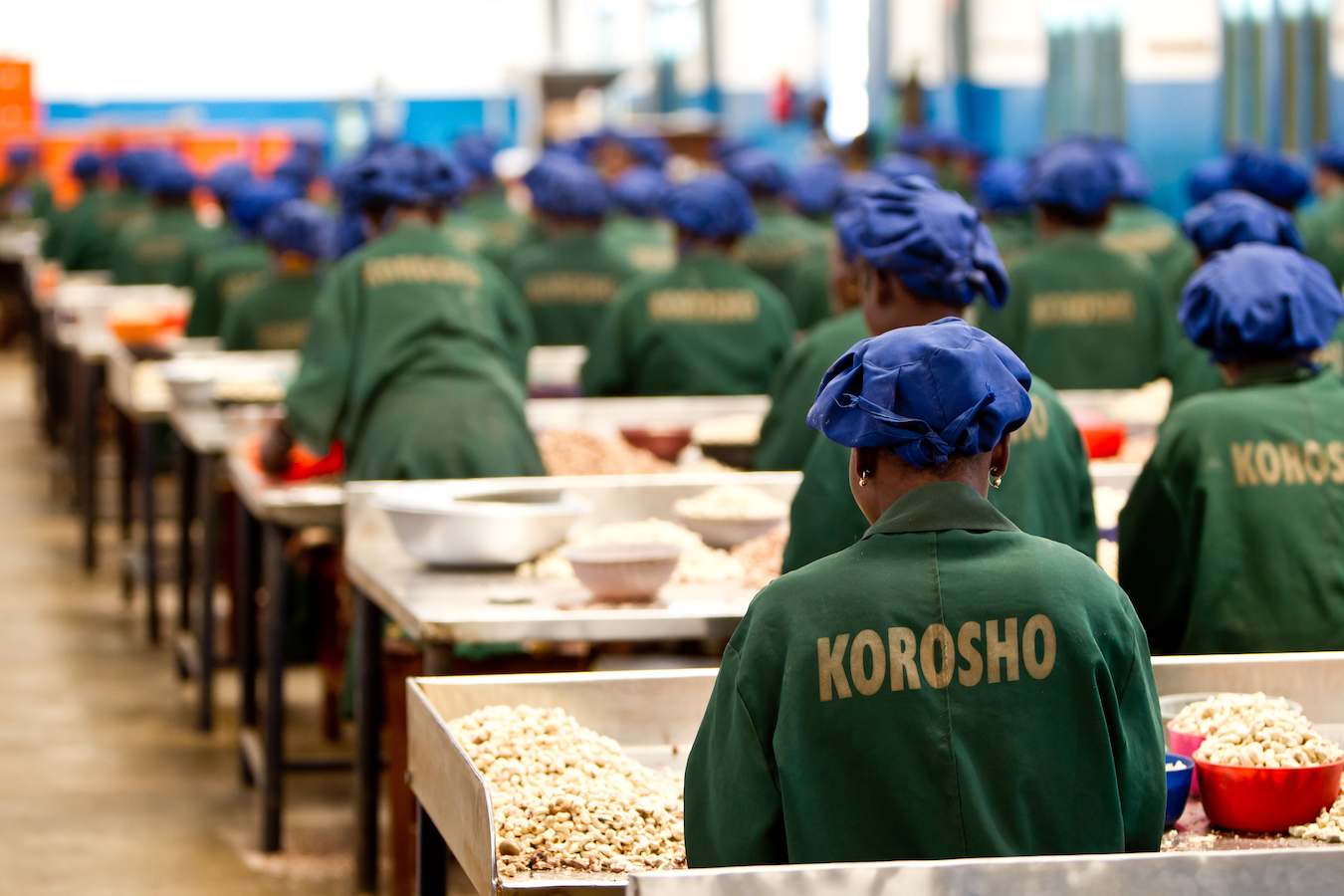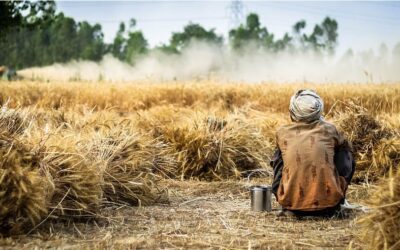The word ‘CASHEW’ contains the word ‘SHE’

In the lead-up to the Africa Cashew Alliance’s 13th annual conference to be held in Dar es Salaam between 7-9 November, I’ve been thinking about cashew a lot. I will have the honour of delivering a speech during the opening ceremony at the conference, and there’s so much I want to say – about Tanzania’s cashew journey, about the potential that lies in localized processing of raw cashew nut, about the fascinating commodity that cashew is. While I was pondering on all this, I began to break down the word cashew into separate words, and I couldn’t but help notice the striking coincidence that the word CASHEW also contains the word SHE.
And this is something that has always struck me as unique about the cashew sector in the countries where ETG has processing plants. In the regions where we work in Tanzania and Mozambique, more than 5,000 people are directly employed by ETG in various functions related to the cashew value chain, creating employment in rural and remote areas in the districts of Newala, Mtwara and Tunduru in Tanzania, and Cabo Delgado and Nampula in Mozambique. It is a remarkable fact that 95% of our workforce are women, who have proved themselves to be skilled, reliable and efficient employees. There is no other single bigger employer of women to the workforce in the areas surrounding the processing plants, and this is a fact that I personally proud of.
These women, from extremely disadvantaged backgrounds, enjoy benefits associated with formal, contractual employment in the labour market, including free meals, health insurance, contributions to social security, maternity leave and the ability to save for the future. It has been proved that when more women work, economies grow because productivity is boosted. It has also been proved that women’s economic equality is good for business, resulting in enhanced organizational effectiveness and growth. Indeed, this nut has provided so many dedicated and underserved women a transformative opportunity to lift themselves and their families out of poverty.
ETG, and I, view cashew as not just a commodity, but as a symbol for broader and more equitable economic growth, leading to the development of rural economies and a rising middle class. Cashew is a means of alleviating poverty, especially for the families of the two million smallholder farmers across Africa from whom it is sourced. It also holds the potential to slow down rural-urban migration through increased employment opportunities, not just for women but also for strong and able youth, who can participate in rehabilitating abandoned cashew farms and initiating new cashew plantations. We must all work together to incentivize the sector and bring more young people into farming through capacity building, financial support and enabling policy frameworks.
Cashew has proved itself to be a big earner, but also a provider of financial inclusivity, gender equality and a better tomorrow for thousands of people.
Continue Reading
World Environment Day – Revisiting “Only One Earth”
Climate change is real. It affects developing nations disproportionately as compared to developed nations. Developing nations should not wait for help to do good for the environment but work towards ensuring that these challenges are met headlong. They should know that sustainability goals and development is not mutually exclusive.
World Food Crisis – How Africa can be the long-term solution
Africa has abundant resources to be the food factory for the world. This holds true especially for vegetable oil crops such as Sunflower, palm, soybean and rapeseed. Tanzania provides ideal conditions for growing sunflower at scale and supply it’s oil to the major consuming nations such as India.
Earth Day – Rising to the challenge of saving ourselves
We need to find solutions to ensure we can not just stop but reverse climate change. One solution is regenerative agriculture that can not only improve the yields for the farmers, but also reduce their carbon footprint.




0 Comments